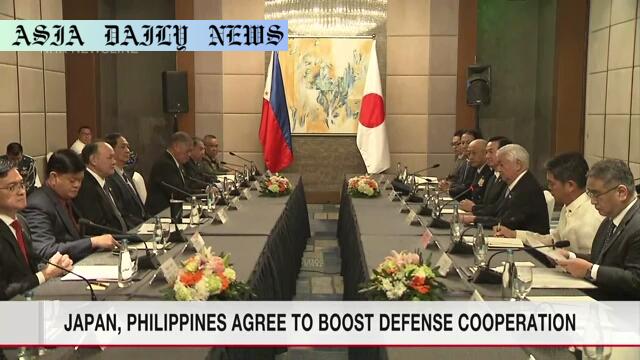Defense Cooperation: Japan and the Philippines agree to establish high-level dialogue to bolster defense collaboration and intelligence sharing.
- Defense Cooperation between Japan and the Philippines aims to improve military collaboration.
- A framework for high-level dialogue will facilitate joint drills.
- Efforts will include defense equipment exports and intelligence sharing.
- Japan also aims to promote peace and stability in the Indo-Pacific.

Introduction
Japan and the Philippines have embarked on a collaborative effort to enhance their defense capabilities and address growing security concerns in the Indo-Pacific. This significant step comes in response to rising international tensions and China’s assertive military activities in the South and East China Seas. Both nations are strengthening their strategic partnership with plans to increase military cooperation, joint drills, and the exchange of defense equipment and intelligence resources. This evolving defense collaboration underscores the shared commitment of these nations to uphold regional peace and stability.
Strengthening Bilateral Defense Cooperation
During a key meeting in Manila on Monday, Japanese Defense Minister Nakatani Gen and Philippine Defense Secretary Gilberto Teodoro underscored the importance of bolstering defense ties between their nations. The talks culminated in the decision to establish a framework for high-level dialogue, which will prioritize operational collaboration, including joint military drills. This decision reflects a growing recognition of the need for unified action as both countries navigate the complex and contentious security dynamics of the region.
Defense Equipment and Intelligence Sharing
One of the centerpiece agreements includes discussions surrounding the export of a warning and control system from Japan to the Philippines. Additionally, both nations will explore ways to protect their shared military intelligence, a critical component in addressing evolving modern threats. This enhancement in defense equipment and intelligence-sharing mechanisms is expected to bolster their respective military capabilities and foster operational interoperability.
Context and Regional Implications
This partnership takes on added significance as China’s maritime and military activities become increasingly assertive, particularly in contested areas like the South China Sea. By joining forces, Japan and the Philippines demonstrate a steadfast commitment to countering potential threats and safeguarding their national sovereignty. Cooperation in military strategy further reflects the growing strategic importance of the Philippines as a key partner in the Indo-Pacific region.
The Role of Coordination with Allies
Both sides additionally emphasized the importance of broader coordination with nations such as the United States and Australia. This trilateral or multilateral approach further solidifies a network of partnerships that collectively aim to stabilize the region. By coordinating with these strategic allies, Japan and the Philippines can amplify their collective influence and respond more effectively to emerging challenges.
Conclusion: A New Era of Collaboration
Japanese Defence Minister Nakatani expressed optimism following the talks, emphasizing that this agreement marks a new chapter for Japan-Philippines defense collaboration. These efforts not only deepen bilateral ties but also contribute to broader objectives of peace and stability in the Indo-Pacific region. By working together, the two nations are paving the way for a more secure and resilient future amid an increasingly turbulent global landscape.



Commentary
The Importance of Collaborative Defense Efforts
The decision by Japan and the Philippines to strengthen their defense cooperation marks a crucial step toward fostering regional stability. As international tensions escalate, particularly in the Indo-Pacific, such partnerships become indispensable. These joint efforts reflect the awareness that no nation can tackle modern security challenges in isolation. The framework for high-level dialogue between these nations will create avenues for mutual exchange, operational training, and strategic foresight, which will undoubtedly enhance their defense capabilities.
Regional Stability in a Shared Vision
The Indo-Pacific remains an epicenter of geopolitical activity, often marked by overlapping interests and territorial disputes. By aligning themselves more closely, Japan and the Philippines are sending a clear message about their commitment to preserving freedom of navigation and respecting international laws. The growing strategic importance of the Philippines due to its geographical position further highlights why Japan continues to solidify ties with this Southeast Asian nation. Such alliances ensure that the global balance of power is maintained while safeguarding the sovereignty of individual states.
A Broader Implication for Global Peace
When viewed in a larger context, the collaboration between these two nations becomes a significant piece of the puzzle in achieving global peace and stability. Involving other allies, such as the United States and Australia, ensures that their collective strength can deter potential aggressors and promote a rules-based international order. What stands out in this partnership is the proactive approach both nations are taking—to not only react to tensions but to preemptively establish a robust security framework.